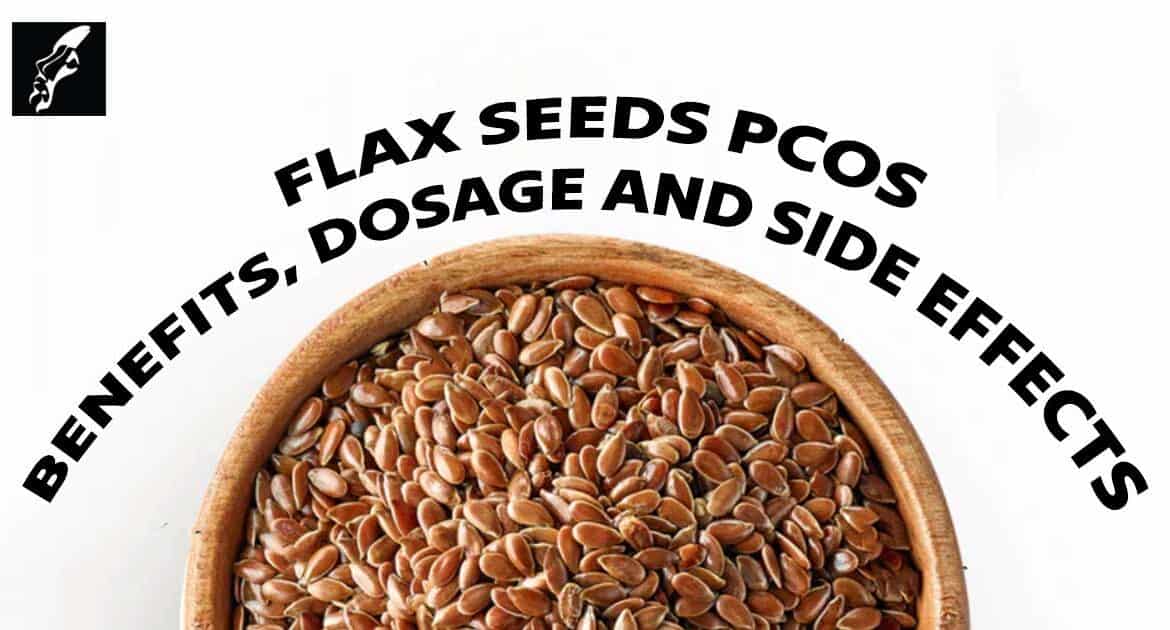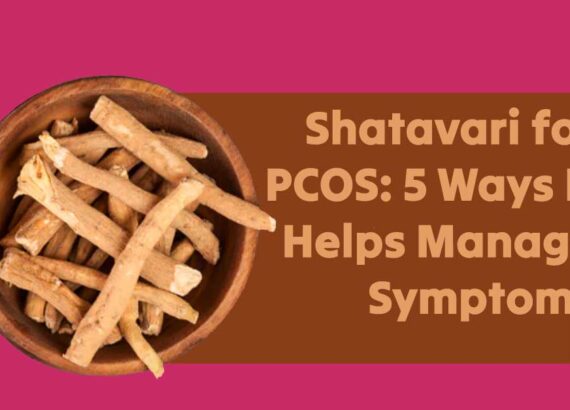Flax Seeds PCOS – Benefits, Dosage, and Side Effects

Flaxseed and PCOS: How This Superfood Helps Hormone Balance
Are you tired of dealing with the symptoms of Polycystic Ovary Syndrome (PCOS)? Look no further than flaxseed. Packed with health benefits, flaxseed is a superfood that can balance hormones and alleviate PCOS symptoms. From healthy fats to high fiber and plant compounds, flaxseed offers a natural way to manage this hormonal disorder. In this article, we explore how flaxseed impacts PCOS by regulating menstrual cycles, reducing insulin resistance, and promoting weight loss. Whether you’re seeking natural remedies or overall health improvement, flaxseed might be the missing piece to your wellness puzzle. Discover the amazing benefits of adding flaxseed to your routine and embark on a journey towards hormonal harmony.
Flax seeds have become popular as a superfood due to their potential health benefits. These small seeds are packed with essential nutrients and contain high levels of healthy fats. People often add them to smoothies, baked goods, and salads. However, it’s important to separate fact from fiction and understand any potential side effects before including them in your diet. In this article, we’ll explore flax seeds, including their nutritional value, debunking myths, and examining possible risks. Whether you’re interested in improving your diet or curious about superfood trends, join us as we uncover the truth about flax seeds and their impact on your health.
Nutritional Value of Flax Seeds: Vitamins, Minerals, and Antioxidants
Flax seeds are a nutritional powerhouse, containing essential vitamins, minerals, and antioxidants that contribute to overall well-being. These seeds are an excellent source of fiber, which aids digestion and promotes a healthy gut. Moreover, flax seeds are rich in healthy fats, which have been associated with various health benefits, including reduced inflammation, improved heart health, and better brain function.
When it comes to vitamins and minerals, flax seeds are particularly high in magnesium, manganese, and thiamine. Magnesium plays a crucial role in regulating blood pressure and maintaining healthy bones, while manganese supports carbohydrate metabolism and optimal immune function. Thiamine, also known as vitamin B1, is essential for converting food into energy and supporting nerve function. The combination of these nutrients and the antioxidants in flax seeds makes them valuable for any diet.
Flax seeds are high in lignans, a type of phytoestrogen that can mimic the effects of estrogen in the body. This can be particularly beneficial for women with PCOS, as it can help regulate hormonal imbalances that often occur with this condition. Additionally, the fiber in flax seeds can help improve insulin sensitivity, which is also commonly affected in PCOS. So, sprinkle some flax seeds on your yogurt or smoothie, and start reaping the benefits!
Health Benefits of Flax Seeds
Adding flax seeds to your diet offers several health benefits. The high fiber content promotes regular bowel movements and prevents constipation. Additionally, the healthy fats in flax seeds possess anti-inflammatory properties, reducing the risk of chronic diseases such as heart disease and arthritis.
Flax seeds also support digestive health. The fiber acts as a prebiotic, nourishing beneficial gut bacteria and promoting a healthy gut environment. A well-balanced gut microbiome is essential for optimal digestion, nutrient absorption, and immune function.
Moreover, flax seeds may have a positive impact on cholesterol levels. Studies have shown that regular consumption of flax seeds can lower LDL cholesterol (the “bad” cholesterol) and increase HDL cholesterol (the “good” cholesterol). This balance contributes to a healthier cardiovascular system.
Incorporating flax seeds into your routine can be a simple and effective way to support hormone balance and improve your overall well-being. Start enjoying the benefits of this superfood today!
Understanding Hormonal Imbalances in PCOS
Polycystic Ovary Syndrome (PCOS) affects millions of women worldwide, causing hormone imbalances and various symptoms such as irregular periods, ovarian cysts, weight gain, acne, and excessive hair growth. Although the exact cause is unknown, factors like insulin resistance, genetics, and inflammation are believed to contribute.
The Role of Diet in Managing PCOS Symptoms
Diet and lifestyle changes are crucial for managing PCOS symptoms. A healthy, balanced diet can regulate hormones, improve insulin sensitivity, and reduce inflammation. Flaxseed is a powerful dietary tool for managing PCOS. This superfood is rich in omega-3 fatty acids, which have anti-inflammatory properties, and lignans, plant compounds that help balance hormones.
Introducing Flaxseed: A Superfood for Hormone Balance
Flaxseed, also known as linseed, comes from the flax plant (Linum usitatissimum). It has a long history of medicinal use and is now recognized as a superfood due to its impressive nutritional profile. Flaxseed is packed with essential nutrients like omega-3 fatty acids, fiber, protein, vitamins, and minerals. It is also a great source of lignans, which act as antioxidants and have estrogen-like effects.
Nutritional Benefits of Flaxseed for PCOS
Flax seeds are a rich source of alpha-linolenic acid (ALA), which is an omega-3 fatty acid. Omega-3 fatty acids are known for their anti-inflammatory properties, which can help reduce inflammation in the body. PCOS is often associated with inflammation, so consuming foods that have anti-inflammatory properties can be beneficial.
Flax seeds also contain lignans, which are compounds that have estrogenic effects on the body. PCOS is often associated with estrogen dominance, so consuming foods that can balance estrogen levels can be helpful. Lignans can also act as antioxidants, which can protect the body against free radical damage.
In addition, flax seeds are a good source of fiber. Fiber can help regulate blood sugar levels, which is important for women with PCOS who are at a higher risk of developing insulin resistance.
How Flaxseed Regulates Menstrual Cycles
Irregular menstrual cycles are a common challenge in PCOS. Flaxseed helps regulate menstrual cycles by balancing hormones and reducing inflammation. The lignans in flaxseed have estrogen-like effects, which can regulate the menstrual cycle and promote regular ovulation. Additionally, the omega-3 fatty acids in flaxseed reduce menstrual pain and cramping, providing relief for women with PCOS.
Flaxseed and Insulin Resistance in PCOS
Insulin resistance is common in PCOS and contributes to weight gain, increased appetite, and difficulties in losing weight. Flaxseed improves insulin sensitivity and reduces resistance, making it an excellent addition to a PCOS diet. The fiber and lignans in flaxseed slow down glucose absorption, preventing spikes in blood sugar levels and promoting stable energy levels. By incorporating flaxseed into your diet, you support healthy blood sugar control and reduce the risk of insulin resistance.
Benefits Beyond PCOS
Flax seeds offer numerous health benefits beyond managing PCOS symptoms. They can help lower cholesterol levels, reduce inflammation, and support heart health. They are also a great source of plant-based protein, which is important for vegetarians and vegans.
Incorporating flax seeds into your diet is a simple and effective way to support your health and manage PCOS symptoms. So, get creative with how you use them in your meals and enjoy the many benefits of this superfood. Remember, a balanced diet is the key to a healthy and happy life.
Dosage of Flax Seeds for PCOS
The recommended dosage of flax seeds for PCOS is 1-2 tablespoons per day. You can add flax seeds to your smoothies, yogurt, oatmeal, or salads. You can also sprinkle them on top of your food.
It’s important to note that flax seeds should be ground before consuming them. Whole flax seeds are difficult for the body to digest, and they may pass through the digestive system without being absorbed. You can grind flax seeds using a coffee grinder or a food processor.
How to Incorporate Flax Seeds into Your Diet?
One of the best things about flax seeds is how easy they are to incorporate into your meals. You can sprinkle them on your oatmeal, yogurt, or smoothies, or add them to your baked goods for a nutritional boost. However, it’s important to note that ground flaxseed is more bioavailable than whole seeds, which means it’s easier for your body to absorb its nutrients. So, make sure to grind your flax seeds before consuming them.
It’s also important to consume flax seeds in moderation. They are high in fiber, which can cause digestive discomfort if consumed in large quantities. Start with a small amount, such as a teaspoon per day, and gradually increase your intake as your body adjusts. And don’t forget to drink plenty of water when consuming flax seeds to prevent constipation
Flaxseed Recipes and Meal Ideas for PCOS
If you’re looking for creative ways to incorporate flaxseed into your meals, here are a few delicious ideas:
- Flaxseed and Berry Smoothie : Blend mixed berries, ground flaxseed, almond milk, and protein powder for a nutritious breakfast smoothie.
- Flaxseed-Crusted Baked Chicken : Coat chicken breasts in a mixture of ground flaxseed, herbs, and spices, and bake until golden and crispy. Serve with roasted vegetables.
- Flaxseed Energy Balls : Combine dates, almond butter, ground flaxseed, and cinnamon in a food processor. Roll into bite-sized balls for a healthy snack.
Experiment with recipes to find what suits your taste preferences. Flaxseed can be a versatile and nutritious addition to your PCOS diet.
Other Natural Remedies for PCOS Hormone Balance
Flaxseed is just one of the natural remedies that can help balance hormones in PCOS. Other options include:
- Cinnamon : It improves insulin sensitivity and regulates menstrual cycles. You can sprinkle cinnamon on oatmeal or add it to tea.
- Spearmint Tea : This tea helps reduce excessive hair growth associated with PCOS. Enjoy a cup of spearmint tea daily.
- Exercise : Regular physical activity is beneficial for balancing hormones, improving insulin sensitivity, and promoting weight loss. Aim for at least 150 minutes of moderate-intensity exercise every week.
Remember, natural remedies should complement a healthy diet and lifestyle.
Possible Side Effects and Precautions
While flaxseed is generally safe, it’s important to be aware of potential side effects. Some people may experience digestive issues such as bloating or gas when consuming flaxseed. To minimize these side effects, start with small amounts and gradually increase your intake. It’s also crucial to stay hydrated as flaxseed absorbs water and may cause discomfort if not enough fluids are consumed.
While flax seeds offer numerous health benefits, it’s important to be aware of potential side effects and take necessary precautions. Consuming large quantities of flax seeds can cause digestive discomfort due to their high fiber content. Some individuals may experience bloating, gas, or even diarrhea. To avoid these issues, start with small amounts and gradually increase your intake, allowing your body to adjust.
Another consideration is the potential for allergic reactions. Although rare, some individuals may be allergic to flax seeds. If you experience symptoms like itching, swelling, or difficulty breathing after consuming flax seeds, seek immediate medical attention.
Additionally, flax seeds contain a natural compound called cyanogenic glycosides, which can convert into cyanide in the body. However, the levels of cyanogenic glycosides in flax seeds are generally safe for consumption. Nevertheless, it’s advisable to consume flax seeds in moderation and avoid consuming large amounts within a short period.
Debunking Myths and Misconceptions
Several myths and misconceptions surround flax seeds that need clarification. One common misconception is that flax seeds can cure or prevent cancer. While flax seeds contain compounds called lignans, which have shown anti-cancer properties in some studies, they should not be considered a miracle cure. Preventing and treating cancer require a comprehensive approach, including a healthy diet, regular exercise, and medical guidance.
Another myth is that flax seeds can replace medication for conditions like high blood pressure or diabetes. While flax seeds can be a beneficial addition to a healthy diet, they should not substitute prescribed medication. It’s crucial to consult with a healthcare professional before making any changes to your treatment plan.
Research and Studies on Flax Seeds
Numerous research studies have investigated the health effects of flax seeds. One study published in the Journal of Nutrition found that flax seeds can help reduce blood pressure in individuals with hypertension. Another study published in the British Journal of Nutrition showed that flax seeds can improve glycemic control in individuals with type 2 diabetes.
Moreover, research suggests that flax seeds may offer protection against certain types of cancer, such as breast and prostate cancer. However, more research is needed to fully understand the potential benefits of flax seeds in cancer prevention and treatment.
Flax Seed Supplements vs. Whole Flax Seeds
When incorporating flax seeds into your diet, you have the choice of consuming whole flax seeds or using flax seed supplements. Both options have their pros and cons.
Whole flax seeds are a great source of fiber and provide a satisfying crunch when added to meals. They also contain all the natural components of the seed, including lignans and antioxidants. However, whole flax seeds need to be ground before consumption to unlock their full nutritional potential, as the outer shell is difficult for the body to digest.
On the other hand, flax seed supplements, such as flax seed oil or capsules, offer a convenient way to consume flax seeds without the need for grinding. These supplements are typically more concentrated in omega-3 fatty acids and may be easier for some individuals to incorporate into their daily routine. However, they may lack the fiber content found in whole flax seeds.
Conclusion
Incorporating flaxseed into your diet can have a profound impact on PCOS symptoms and hormonal balance. From regulating menstrual cycles to reducing insulin resistance, flaxseed offers a holistic approach to managing PCOS. Listen to your body, experiment with recipes, and consult healthcare professionals if needed. By making flaxseed a part of your routine, you take a step towards hormonal harmony and reclaiming your health. Start incorporating flaxseed today and experience its extraordinary benefits.
Flax seeds are a versatile and nutritious addition to a balanced diet. Their high fiber content, omega-3 fatty acids, and abundance of vitamins and minerals make them a superfood worth including in your meals. However, it’s important to consume flax seeds in moderation and be mindful of potential side effects, especially if you have specific health conditions or allergies.
FAQs
Q: What is the full form of PCOD?
A: The full form of PCOD is Polycystic Ovarian Disease. It refers to a hormonal disorder that affects the ovaries. For detailed information about PCOD, its causes, symptoms, diagnosis, and management, you can visit our blog post on “PCOD full form” that provides in-depth insights into PCOD.
Q: Can flax seeds cure PCOS?
A: There is no cure for PCOS, but flax seeds can help manage its symptoms.
Q: Can men with PCOS use flax seeds?
A: PCOS is a hormonal disorder that affects women, so men cannot have PCOS. However, men can still benefit from consuming flax seeds.
Q: Can I consume flax seeds during pregnancy?
A: Flax seeds are generally safe to consume during pregnancy, but it’s always best to consult your doctor before adding any new food to your diet.





